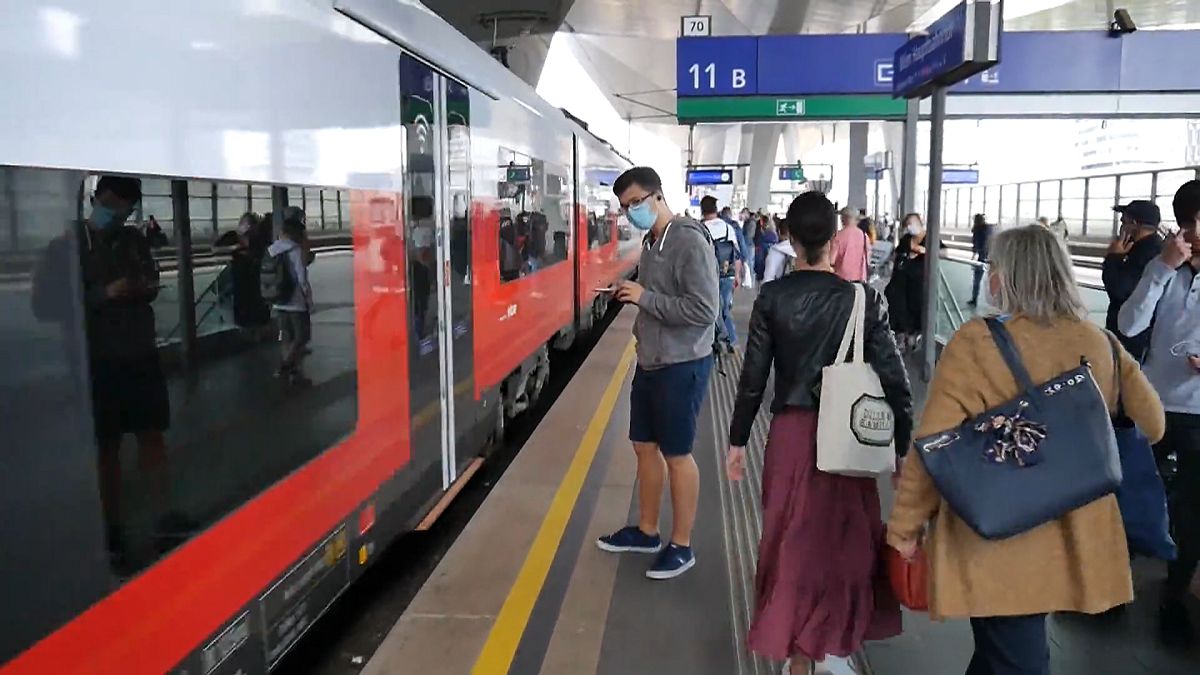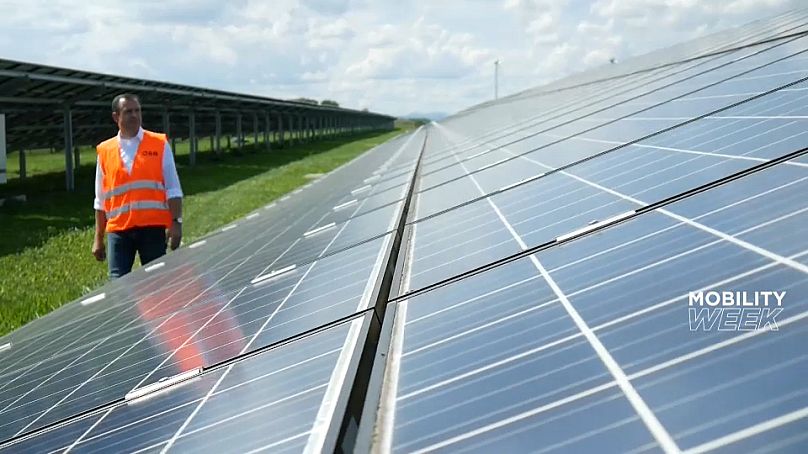Travelling throughout Europe only by train has its difficulties, but the EU and its members are highlighting the environmental virtues of this form of transport with the 'Connecting Europe Express', a train that is currently crisscrossing the continent.
Much remains to be done to create a uniform rail network in Europe, but the European Commission is taking the lead with its train "Connecting Europe Express" which promotes rail as a sustainable mode of transport. The EU train is currently crisscrossing the continent and has already made several stops including in Austria, the EU member with the highest proportion of train passengers.
Bernhard Rieder works for the Austrian Federal Railways, ÖBB. He says that "the Connecting Europe Express is a sign that in the European Year of Rail, train travel really has a future."
However, Europe's national railway systems have different technical standards which is an obstacle to cross-border rail traffic. It's something that Rieder says needs to change, "at all borders, there are new rules, new regulations, technical challenges. This must end."
Around 25% of the EU's greenhouse gas emissions are caused by transport and it's a figure that keeps on rising. In order to achieve climate neutrality by 2050, Brussels wants to triple high-speed train traffic.
In Austria, twice as many kilometres are travelled by rail per person than the EU average. According to experts, this is due to investment in infrastructure and the frequency of connections.
Since 2019, the Austrian Federal Railways has only used electricity from renewable energy sources. To be able to do this, the company has eight hydroelectric power plants as well as a solar power plant. According to ÖBB, it's the world's first.
Daniel Pinka from the Austrian Federal Railways told euronews about the solar power plant. He says that "with 7000 panels, solar power is turned into train power, which is then fed directly into the railway network."
Rail is by far the transport sector with the highest EU funding, but despite this, train tickets are often more expensive than airline tickets. Some NGOs criticise the fact that currently neither VAT nor fuel taxes are levied on international air travel.
Christian Gratzer, from 'VCÖ' a mobility and transport NGO, argues that the EU has adopted ambitious climate targets "that are expected to significantly reduce greenhouse gases", but countries are also continuing to expand road networks, subsidise air transport and subsidise regional airports. It's what he calls "a huge contradiction to climate targets."
More and more EU members use subsidies to reduce train fares. Slovakia and Hungary, for example, offer free rail travel for low-income passengers like seniors and Austria is now launching an annual pass for the country's entire public transport system for just three euros a day.
From September 13th - 17th 2021 we are exploring the trends shaping the future of transport and personal mobility. See more stories here.

